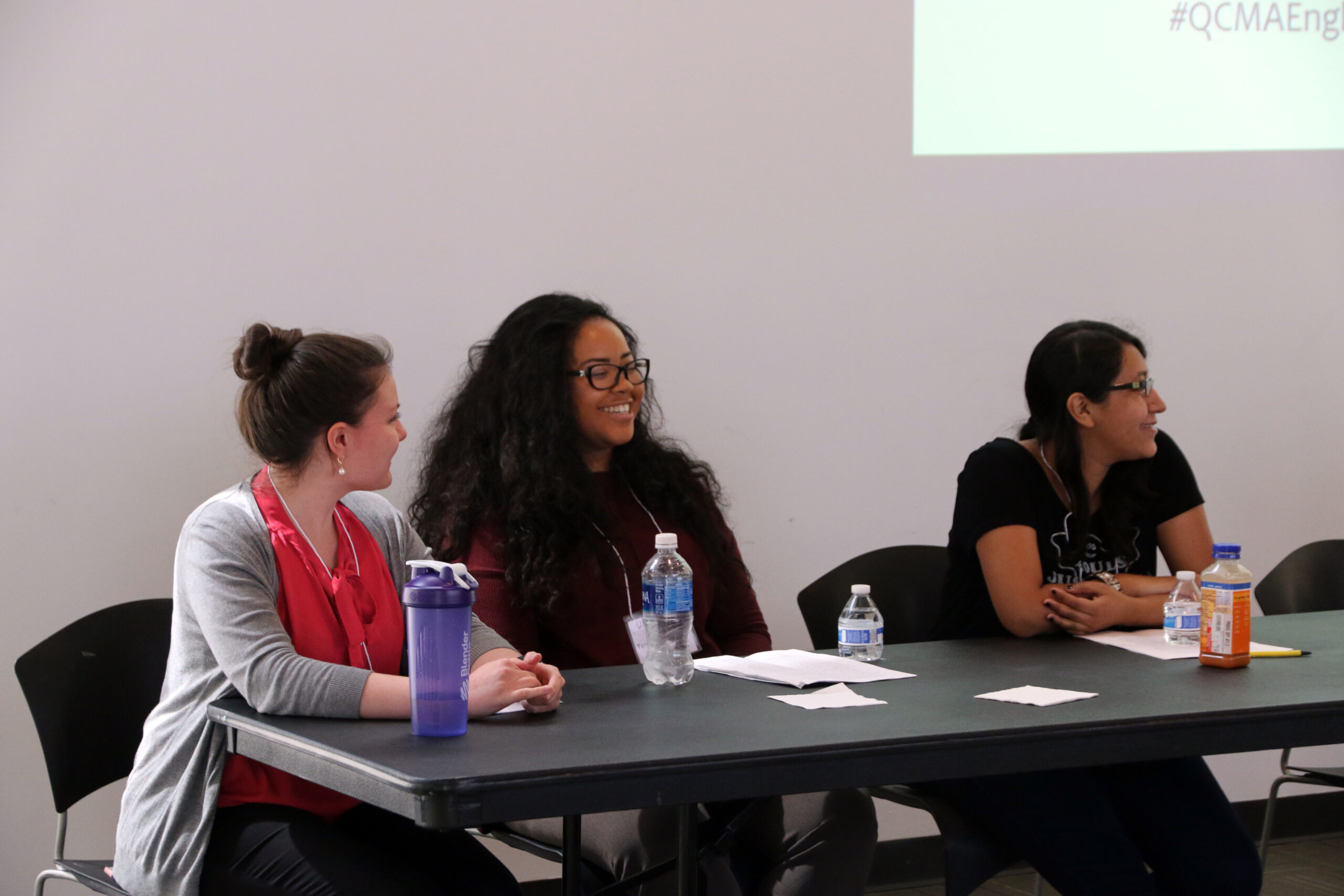QC’s MA in English is a 30-credit program that aims to provide students with opportunities for scholarly and professional specialization in American, British, and global literatures, as well as a wide range of fields, forms, and theories. Course requirements include 2 foundational seminars in graduate methodologies and literary theory, 7 electives that enable students to pursue a variety of research interests, and a thesis essay written and revised with the guidance of a faculty advisor.

The English Department prides itself on offering a collegial and supportive learning environment for our graduate students. Our courses are small by design, with an average enrollment of 12 to 15 students. There is no stipulated course load; each student, in consultation with the Directors of Graduate Studies, creates a schedule and course of study tailored to their particular professional and intellectual interests and goals.
All our graduate English courses are scheduled in the late afternoon and evening, at 4:40pm and 6:40pm. Students can also take elective courses during the College’s Summer Session Program.
MA Thesis
The culminating thesis essay should represent a student’s strongest scholarly work in the English MA program. It should be about 6,000–8,000 words (about 25–30 pages) in length, including an up-to-date and extensive Works Cited list of secondary sources. In most cases, the thesis essay should be a revision and expansion of a paper (or papers) written during MA coursework.
Completing the MA Thesis
- English MA Handbook
- MA Advising Worksheet
- Independent Study sign-up form
- Thesis approval form
- 791 Guide
Current Courses
More Course Information
Read more about the teaching and research interests of our distinguished full-time faculty.


